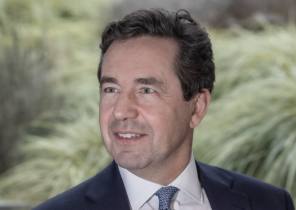

The City watchdog has defended itself against claims that it is failing to treat whistleblowers properly and has ignored their evidence.
A number of whistleblowers and action groups have criticised the regulator for failing to listen and act promptly when they raised concerns of wrongdoing in the past.
It comes after the Financial Conduct Authority launched a campaign earlier this week (March 24) to encourage financial services workers to report any wrongdoing at their firm.
One whistleblower, who wants to remain anonymous, called this campaign “a farce” and said they have contacted the FCA on numerous occasions over the years with concerns of customer detriment as a result of engaging with authorised advisers and non-regulated introducers.
This included clients being marketed for LCF bonds, and instances of one firm making misleading representations about their charges and fund performance.
They said: “The stance from the FCA has always been ‘we will not investigate individual complaints’; these were not individual complaints, they were, and in some cases remain, systemic abuse and certainly in breach of COBS rules regarding integrity.
“The FCA could have prevented many poor customer outcomes had they listened to the people reporting these matters and taken action at the time. Instead what do they do, nothing. And then the good financial advisers pick up the costs through the FSCS which leads to increased charges for us that we have to pass on to clients. The FCA is not fit for purpose.”
Meanwhile another source told FTAdviser they had “sent so much information to no avail”.
Mark Bishop, from the Connaught Action Group, alleged the regulator had ignored whistleblowers’ evidence in the Connaught case and said he has on multiple occasions asked the FCA to implement a set of measures to transform its treatment of whistleblowing.
But the regulator claimed the majority of whistleblowers have a positive experience.
An FCA spokesperson said: “The FCA has been engaging positively with over 1000 whistleblowers who have contacted us in the last 12 months.
“The vast majority of whistleblowers are pleased with the response from the FCA and the FCA receives information from a great number of people, through our contact centre and through other means.”
The Connaught Income Fund Series 1 was an unregulated collective investment scheme run by operators Capita Financial Managers and Blue Gate Capital from March 2008, providing short term bridging finance to commercial operators in the UK property market.
The fund went into liquidation in December 2012, with investors losing £118m in three versions of the Connaught funds when they collapsed.
Bishop said: “The FCA claims it is improving its treatment of whistleblowers and their evidence. Yet there are dark hints that they're really only interested in evidence of ‘serious"’wrongdoing.
“This is a typically incompetent FCA position. It risks deterring people from providing intelligence, unsure whether it meets that threshold and anxious about risking their careers for nothing. Also, individuals may not know how valuable or otherwise their information might be.”
In recent years the FCA has invested in increased resourcing to support whistleblowers, including increasing the headcount on its whistleblowing team.
The regulator said this specialist team is trained to debrief and interact directly with whistleblowers, as well as liaising with various departments across the organisation.
It has also introduced a mandatory e-learning module for all staff, to help identify potential whistleblowers and make sure any intelligence received by the FCA is “dealt with correctly and that identities are protected”.
Whistleblower Paul Carlier said the FCA’s moves in this space were welcome but more needed to be done.
He said: “I welcome anything that improves the whistleblower environment and protection. And all of this sounds great from the FCA and [enforcement director Mark] Steward.
“I resent the implication that they’ve always had this sentiment and regard for whistleblowers. That has not been my experience or that of many others.”
Meanwhile, Andy Agathangelou, founder of the Transparency Task Force, who often deals with whistleblowers, said the FCA will need to build trust among whistleblowers in its new campaign.
He said: “It’s such a big problem that many ‘in-the-know’ suggest that until the FCA starts protecting whistleblowers properly, the last thing they should do is blow the whistle on a company doing something wrong. That’s an appalling state of affairs.
"It’s obvious that the FCA is going to have to do a great deal of work to rebuild trust and confidence in it; not just for this regulatory failure issue, but also for the many others they seem to be struggling with."
amy.austin@ft.com
What do you think about the issues raised by this story? Email us on FTAletters@ft.com to let us know



